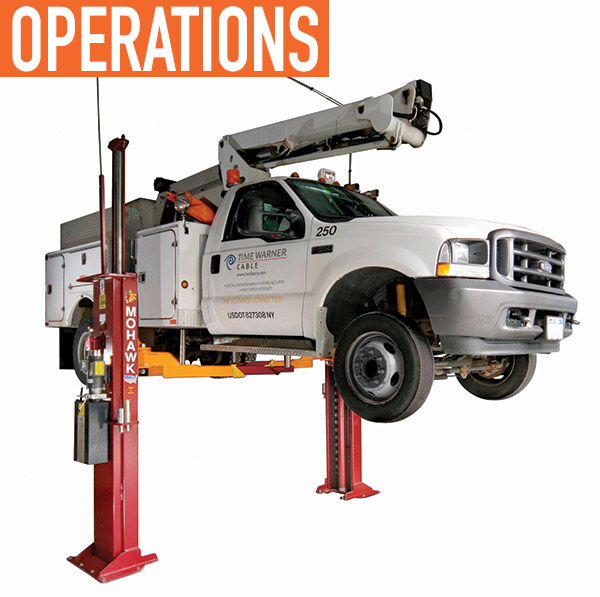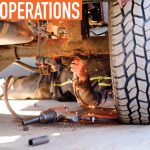Cooperative procurement makes better use of an organization’s time and resources by reducing the number of administrative processes and sharing the procurement and contract management process work-load. Efficiencies may be derived from conducting one procurement process and maintaining one contract in lieu of many.
As defined in the NIGP Dictionary of Procurement Terms,cooperative procurement is “the action taken when two or more entities combine their requirements to obtain advantages of volume purchases, including administrative savings and other benefits.”
Cooperative procurement is used most often by governmental entities, since they are required to follow laws mandating competitive bidding for purchases above certain thresholds.
Once called “piggybacking,” cooperative procurement has progressed over the past few years to the point that virtually every state, county, city, or transit shop uses it. Basically, cooperative procurement enables the use of a procurement contract by more than one government agency. This allows local government entities to secure a greater return for the expenditure of public funds by securing the price advantage of larger volume purchasing.
Cooperative procurement can be achieved through either a joint approach to the market and/or where an agency or agencies establish a contract or standing offer arrangement that allows other agencies access.
TCP
For those agencies that use a request for proposal (RFP) or bid process to acquire products and services, a best practice is to think about the total cost of procurement (TCP). TCP includes not only the purchase price, but the time and costs from dealing with many vendors, tracking orders, reconciling invoices, monitoring costs by department, fixing mistakes, etc.
The TCP can be lowered by taking advantage of procurement contracts that have already been established by other government agencies or organizations, or in other terms, piggybacking.
Going out to bid can end up costing more than was planned. A particular transit agency, instead of using its state contract, chose to go out for a public bid. The reasoning was that the agency always saves money over the prices available on the state contract. In this case, the transit agency spent $35,000 for a vehicle lift that was available under the state contract for $10,000 less. Think what a shop could buy with an extra $10,000?
PROCUREMENT OPTIONS
There are a number of options and opportunities available to participate in government-to-government procurement cooperative. They can be found at www.govlifts.com.
Choosing the appropriate cooperative to use will save purchasing time and budget dollars, plus allow equipment purchasers to focus more on the job of running their operation rather than writing bid specifications for the equipment their shop needs.

STATE CONTRACTS
With some products, such as vehicles, there is often a state contract in place because school buses, trucks, and police vehicles have a set lifecycle, and these fleets commonly turn over a certain percentage of their vehicles annually.
Take a state contract for police vehicles, for instance. Typically, the state police would be the agency that initiates a contract for police vehicles. Cumulatively, however, the county sheriff’s departments and local townships buy more police vehicles on a state’s contact than the state police.
There are also government cooperatives for less frequently, non-cyclically purchased items, such as a truck lift or a tire changer. Check to see if there is a state contract for such equipment.
State contracts are competitively bid, with specific terms and conditions, such as lowest government pricing, prepaid freight, and a vendor-managed website that provide technicians, fleet managers, and buyers with complete information and details.
If there is no state contract, every state has procurement laws and codes that allow an agency (state, county, special districts, or transit garages) to avail itself of another state’s contract.
PURCHASING PROGRAMS
The National Joint Powers Alliance (NJPA) is a government-to-government nationwide procurement cooperative that serves more than 50,000 members nationwide (www.njpacoop.org). It offers a multitude of contract purchasing solutions for products, equipment, and services that are leveraged nationally to enable contracted suppliers and member agencies to work smarter and more efficiently as they do business with each other.

There is no cost for any government agency to become a member of NJPA. Once membership is established, it never expires.
HGACBuy (www.hgacbuy.org) is another nationwide government-to-government procurement service. As a unit of local government assisting other local governments, HGACBuy strives to make the governmental procurement process more efficient by establishing competitively priced contracts for goods and services, and by providing the customer service necessary to help its members achieve their procurement goals.
All contracts available to members of HGACBuy have been awarded by virtue of a public competitive procurement compliant with state statutes. HGAC has 7,000-plus members in 48 states.
Another national option is the National Association of State Procurement Officials (NASPO) ValuePoint (formerly WSCA-NASPO), the cooperative purchasing arm of NASPO. This nationally-focused cooperative purchasing program leverages the collective expertise of all states with the purchasing power of their public entities. NASPO ValuePoint aggregates the demand of all 50 states, their political subdivisions, and other eligible entities. More information can be found at www.naspovaluepoint.org.
Whether it is an automotive lift or any of the hundreds of other products and services needed to run a shop, these items have likely already been competitively bid and awarded.
ABOUT THE AUTHOR:
Steve Perlstein has been with Mohawk Lifts for 35 years and is a member of the Automotive Lift Institute. He brings the experience of growing up in the family garage.
_______________________________________________________________________
MODERN WORKTRUCK SOLUTIONS: FEBRUARY 2017 ISSUE
Did you enjoy this article?
Subscribe to the FREE Digital Edition of Modern WorkTruck Solutions magazine.
![]()




